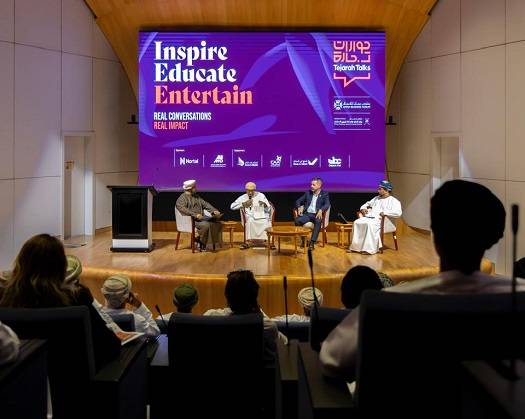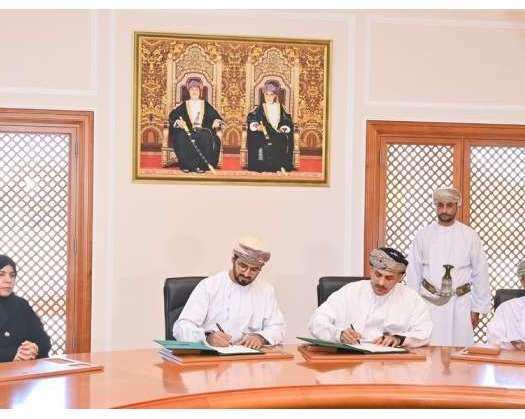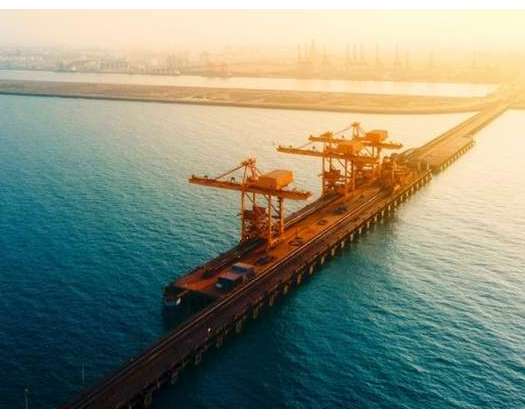MUSCAT: During the latest Tejarah Talks held on Tuesday, a daring proposition to establish Oman as a prospective host for Formula One (F1) garnered significant attention. Notable figures in sports and events articulated a persuasive strategy aimed at realizing the potential of the nation's sports economy.
Drawing on international examples, regional triumphs, and a collective ambition for landmark sporting occasions, the discussion focused on how Oman could expedite its emergence as a leading destination within the expansive $2. 65 trillion global sports market.
There is a need for Oman to have grand ambitions and visionary aspirations — including the goal of later hosting a Formula One Grand Prix. This was the common theme echoed by the panelists in the recent Tejarah Talks, where influential representatives from Oman’s sports and events industries presented an inspiring vision for the country's sports economy.
The 90-minute conversation, themed “Game On: The Potential of Oman’s Sports Economy,” featured Pankaj Khimji, Advisor for Foreign Trade and International Cooperation from the Ministry of Commerce, Industry and Investment Promotion (MoCIIP); Joe Rafferty, Events Director at Oman Sail; and Ali al Ajmi, CEO of Sabco Sports.
The three panelists were unified in their stance that Oman should aspire to host Formula One in the future and begin the necessary planning immediately.
“Oman has established its capability by hosting international events. It is reasonable for hosting Formula One to be a serious goal,” remarked Khimji, who is also the President of Oman Cricket.
“Whether it’s creating a city circuit along the Muscat Corniche like Monaco or Jeddah, or a specially designed racetrack in Sultan Haitham City, the prospects are promising. I would be thrilled to witness F1 in Oman. ”
Khimji highlighted the successes of Oman Cricket as a model for economically driven sports development. By investing a mere $1. 3 million over five years, Oman Cricket has generated in excess of $5 million in domestic value by organizing international competitions — leading to enhancements in tourism, hospitality, and infrastructure.
Referencing the 2021 ICC T20 World Cup, which was partially hosted in Oman, he noted that the tournament drew 167 million viewers worldwide, accumulating an astonishing 112 billion viewing minutes.
In comments to Times of Oman, Khimji stated: “Oman is currently positioned among the top 20 cricket nations. We are the only Associate nation that has participated in three T20 World Cups, and our Test-accredited venue is even being deliberated as a site for hosting Afghanistan’s Test matches. ”
Khimji also suggested initiating an annual signature sports event that could serve as a cornerstone of Oman’s athletics calendar and enhance international recognition.
“Hosting just one event annually can drastically alter how the world perceives Oman,” he emphasized.
Ali al Ajmi discussed efforts to innovate engagement with technology across the nation. “Sabco Sports is preparing to introduce the nation’s first dedicated sports application that will centralize all sports activities. This will be a transformative development for how Omanis engage with sports at every level. ”
Joe Rafferty from Oman Sail underscored the necessity of establishing a robust ecosystem to support Oman’s sports industry.
“We are already capable of hosting top-tier events. However, moving forward requires stronger collaboration and improved infrastructure to elevate us to the next stage. ”
Rafferty highlighted that the most significant asset of Oman lies in its human capital.
“Oman’s primary strength comes from its people. With adequate support and collaboration, we can create something exceptional on a global scale. ”
The panel reached a consensus that fostering a sporting culture should initiate within educational institutions.
Khimji stressed the importance of implementing a well-structured sports curriculum, ensuring that physical activity becomes a fundamental aspect of youth development in Oman.
He shared information about a pilot initiative led by Oman Cricket, which engaged more than 700 children aged 8 to 12 in organized cricket across four semesters—an impactful illustration of how early involvement can lead to sustained interest.
“It is essential to start early, establish infrastructure, and cultivate a sports-oriented mindset. We need to regard sports as a plausible career path and a national treasure,” Khimji stated.
Ajmi and Rafferty concurred, with Rafferty emphasizing:
“To achieve world-class status in the future, we have to integrate sports into daily life, beginning with our educational system. ”
The panellists also acknowledged that sports offer extensive social advantages—from decreasing healthcare expenses to enhancing community connections—and advocated for a national framework that combines infrastructure development, talent enhancement, and partnerships between the public and private sectors.
Facilitated by the Oman Business Forum in partnership with MoCIIP and backed by sponsors such as MHD, Nortal, Invest Oman Lounge, and Oman FM, the discussion not only delved into the trillion-dollar global sports industry but also examined how Oman’s distinctive setting and youthful demographic could establish it as an attractive sports hub.
As the session concluded, a unified sentiment resonated among both the panellists and the audience: With clear vision, strategic planning, and ambition, Oman can secure its place on the international sports stage—potentially even as a future host for Formula One events.












